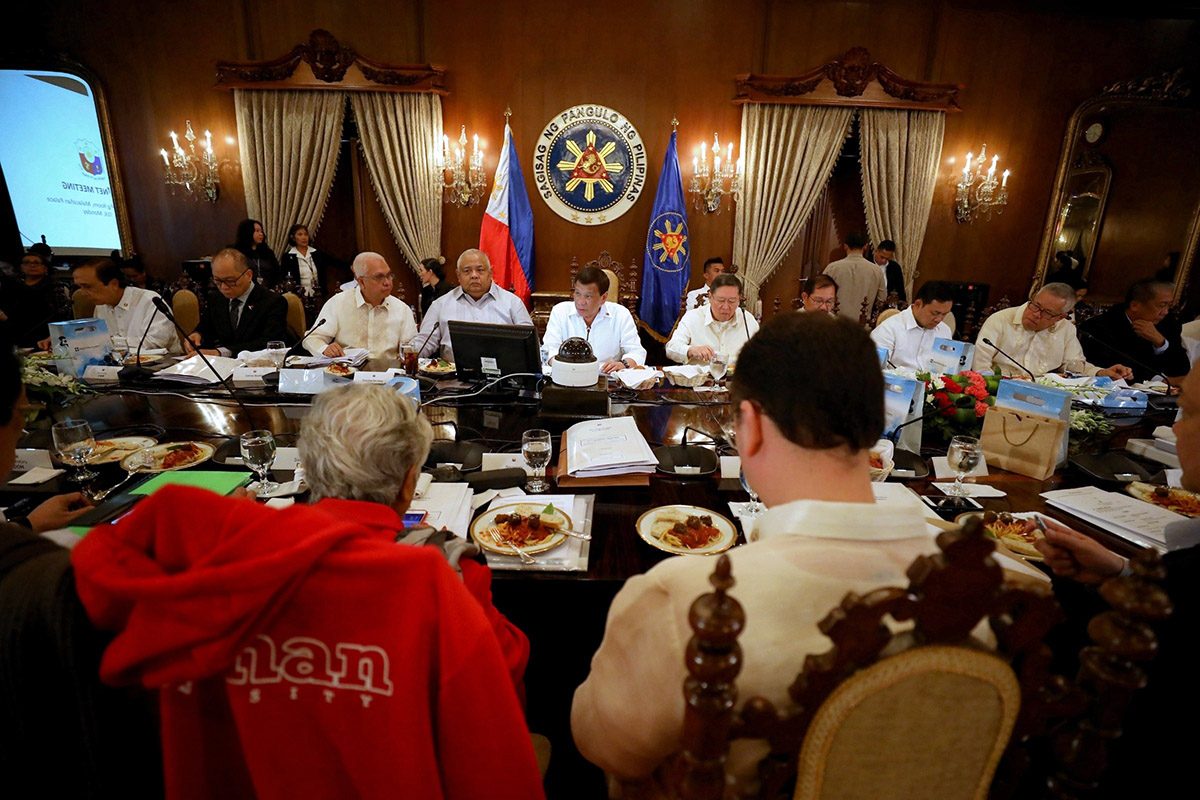SUMMARY
This is AI generated summarization, which may have errors. For context, always refer to the full article.

MANILA, Philippines – Malacañang submitted to Congress its version of a bill to create a department solely focused on disaster management, one of the priorities President Rodrigo Duterte mentioned in his 3rd State of the Nation Address.
“The Presidential Legislative Liaison Office (PLLO) has transmitted yesterday to the Office of the Senate President and the House Speaker the administration’s version of the bill creating [the] Department of Disaster Resilience or DDR,” said Presidential Spokesperson Harry Roque on Tuesday, July 31.
The DDR is envisioned to be an “empowered, highly specialized, and responsive” agency with a “clear unity of command.” It will focus on natural disasters and effects of climate change such as cyclones, El Niño, earthquakes, tsunamis, and volcanic eruptions.
Passing the bill, Roque said, “will be a significant step towards attaining safe, adaptive, and disaster resilient communities.”
What’s in the proposed bill? An explanatory note of the Palace-proposed bill explains some facets of the DDR.
The department will be led by a disaster resilience secretary and at least 4 undersecretaries in charge of specific divisions, including a “support to operations with strong ICT (information and communications technology) cluster.”
The DDR will implement 4 levels of disaster preparedness and response depending on the gravity of the calamity. These different levels are to be implemented by the mayors up to the secretary.
Duterte is all for this version of the bill because it creates a clear chain of command and clear point person for government response to disasters and calamities.
“This is consistent with what the President said, even on Marawi, he doesn’t like committees. He wants someone in charge and the President made this very clear when the proposed bill was presented in the last Cabinet meeting,” said Roque.
“There will be one person calling the shots in case of disasters,” he added.
How is different from the current setup? The National Disaster Risk Reduction and Management Council (NDRRMC) is the government body currently handling the coordination of various government agencies whenever there is a calamity, both natural or man-made.
Malacañang believes this arrangement is faulty as, being a merely coordinating body, the NDRRMC depends on the response time of other departments and responsibility is shared among them. This, according to the Palace, means no one is in charge during disasters.
The Palace bill was based on discussions during Cabinet meetings in which Super Typhoon Yolanda (Haiyan) was used as an example of instances when there is a need to harmonize and streamline disaster risk reduction response by government agencies. (READ: Why Mar Roxas’ photo was in a Cabinet meeting slide)
What are some key provisions of the bill? The proposed bill also details “innovative” and “responsive” procurement rules and mechanisms to be used in times of disaster, including “stand-by contracts, pre-arranged systems of procurement with pre-approved list of contractors, pre-negotiated contracts, advanced procurement contracts, and framework contracts.”
Officials, both in national and local governments, have pointed out how the government’s procurement process often slows down disaster response because of the many steps involved.
These steps were put in place to ensure public funds are not abused, but there have also been suggestions to modify the process in order to adapt to disaster situations where government services are urgently needed.
Malacañang’s explanatory note states that there should be the “requisite transparency and checks and balances” in implementing alternative procurement methods.
The bill also seeks more flexible rules on hiring personnel, especially “highly skilled technical experts” to ensure adequate human resources in times of calamity. – Rappler.com
Add a comment
How does this make you feel?
There are no comments yet. Add your comment to start the conversation.